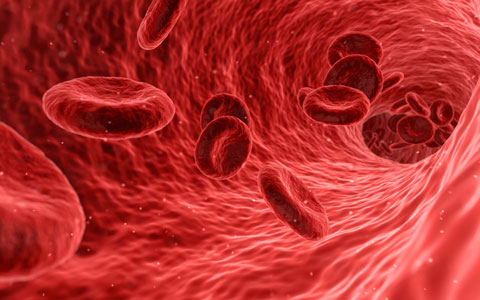By Anna Russell
 As soon as your pregnancy is confirmed your midwife or doctor will recommend blood tests to determine your immunity to various illnesses, as well as your overall health, your blood type and your Rh factor. Not everybody knows what their blood type is as it generally doesn’t affect us in a day-to-day sense. However in pregnancy it becomes important, as does the knowledge of whether you are Rh positive or negative.
As soon as your pregnancy is confirmed your midwife or doctor will recommend blood tests to determine your immunity to various illnesses, as well as your overall health, your blood type and your Rh factor. Not everybody knows what their blood type is as it generally doesn’t affect us in a day-to-day sense. However in pregnancy it becomes important, as does the knowledge of whether you are Rh positive or negative.
What do Rh negative and Rh positive mean?
Everyone has a blood type (O, A, B or AB) and also a positive or negative rhesus or Rh factor. If you are Rh negative (also referred to as Rh (D) negative), this means your red blood cells do not have the D antigen. The D antigen is a protein carried on the red blood cells of people who have Rh positive blood types. Seventeen percent of the population are Rh negative and this is also influenced by ethnicity.
What is the significance of Rh negative blood and pregnancy?
A foetus inherits its blood type from both its mother and its father, therefore your baby may not have your blood type. An Rh negative mother for instance may carry an Rh positive baby.
Normally this isn’t an issue unless the foetal blood enters the mother’s blood stream. If this occurs then the mother’s body will develop antibodies to destroy Rh positive antigens because it recognises these as foreign cells. This is quite similar to the way the human body develops antibodies to fight viruses and provide ongoing immunity when a person comes into contact with a transient illness.
If the mother’s body develops antibodies to Rh positive blood then this can have catastrophic effects on future pregnancies as the antibodies cross the placenta and attack the foetus’ positive red blood cells. This can cause severe anaemia, fluid retention, swelling and brain damage in the foetus, and potentially foetal heart failure and death. This condition is called Haemolytic Disease of the Newborn or HDN.
How can foetal blood cross into the mother’s blood stream?
Foetal blood can cross into the mother’s blood stream without the mother being aware of it. The most likely time this will happen is during childbirth thus affecting future pregnancies. Times when foetal blood may cross into the mother’s blood stream include:
- Childbirth (affecting future pregnancies)
- Miscarriage beyond 12 weeks gestation
- Ectopic pregnancy
- Termination of pregnancy
- Amniocentesis
- Chorionic Villus Sampling (CVS)
- Vaginal bleeding during pregnancy
- External Cephalic Version (ECV)
- An accident resulting in a hard blow to the stomach
Who is at risk?
Only mothers who have Rh negative blood are affected in pregnancy. Mothers who are Rh positive are not affected even if their baby is an Rh negative blood type. If an Rh negative mother is carrying an Rh negative baby then this will not affect her or her baby in this pregnancy. However we do not commonly know our baby’s blood types before birth to determine if the baby is Rh positive or Rh negative.
How can Rh negative mothers protect their pregnancies?
If you have an Rh negative blood type your caregiver will recommend you receive two injections during pregnancy, at 28 weeks and 34 weeks respectively, and a third injection following childbirth. These injections are Rh (D) immunoglobulin, commonly referred to as the anti D injection, which means they prevent the mother’s body creating antibodies to fight the positive blood group of this foetus or future foetuses. It is important to note that if the mother already has the Rh antibodies, the immunoglobulin will be ineffective as it is a preventative only.
The anti D injection is made of blood plasma and has been used since the 1960’s with no major adverse reactions known to affect either the mother or the foetus. In rare cases it may cause a mild allergic reaction in the mother such as a rash or flu-like symptoms. Therefore it is advisable to remain at the hospital or doctors clinic for 20 minutes following the first injection.
What happens if I develop Rh positive antibodies?
The development of antibodies against Rh positive blood is called rhesus disease and occurs in 16% of Rh negative women if not given the anti D injection. This is referred to as sensitisation which means the antibodies easily cross the placenta into the baby’s amniotic fluid and blood stream via the umbilical cord in future pregnancies.
If rhesus disease is present then the level of sensitisation will determine the level of monitoring or interventions needed. If levels of antibodies are low then your baby may not require any treatment. In more serious cases s/he may require phototherapy, a treatment used for jaundiced newborns. Your baby may also require blood transfusions in utero or after birth to speed up the removal of bilirubin in his/her blood.
Bilirubin is produced during the normal breakdown of red blood cells. When bilirubin is present in quantities above what the liver can excrete, it causes an orange tinge to the skin and eyes known as jaundice, which we sometimes see in newborns.
Need more information?
The Australian Red Cross Blood Service (2010) has produced an informative, easy to understand brochure for pregnant women who are Rh negative which can be found here. Your midwife or doctor will also be able to provide you with information regarding Rh negative blood types and the anti-D injection.
Article written for Pregnancy Birth and Beyond on 14th October 2014
References
- Australian Red Cross Blood Service 2010, You and your baby: important information for Rh (D) negative women, CSL Biotherapies, Australia.
- Dean, L. 2005, Blood groups and red cell antigens, National Center for Biotechnology Information, United States.
- National Health Service 2013, Rhesus disease, United Kingdom.
- NSW Health 2014, Maternity – Rh (D) Immunoglobulin (Anti D), Sydney.


Recent Comments